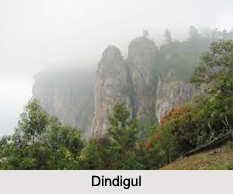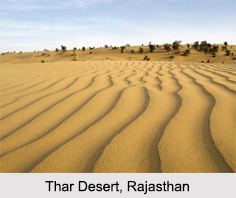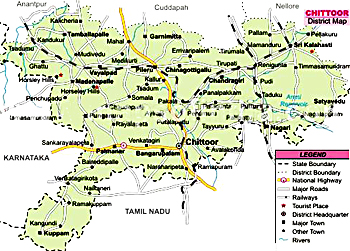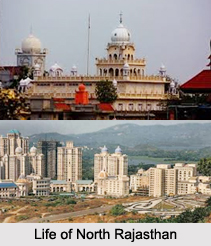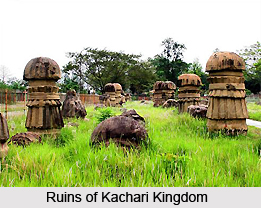Introduction
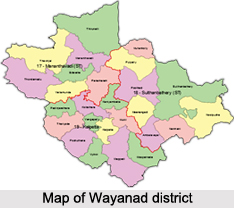 Wayanad District is situated in the northeast of Kerala in south India. This district stands on the southern top of the Deccan plateau and its chief glory is the majestic Western Ghats with superior ridges placed with dense forest, tangled jungles and deep valleys, the landscape is uneven and often rough.
Wayanad District is situated in the northeast of Kerala in south India. This district stands on the southern top of the Deccan plateau and its chief glory is the majestic Western Ghats with superior ridges placed with dense forest, tangled jungles and deep valleys, the landscape is uneven and often rough.
The strategic location of Wayanad District is in between the north latitude 110° 27` and 150° 58` and east 750° 47` and 700° 27`. Nilgiris and Mysore districts of Tamil Nadu and Karnataka, Coorg district of Karnataka, Malappuram, Kozhikode, and Kannur on its four sides, bound Wayanad District.
History of Wayanad District
 In ancient times the Vedar Rajas ruled the land. Later Wayanad came under the rule of Pazhassi Raja of Kottayam Royal Dynasty. The modern history of the Wayanad district is associated with the events that took place during the Mysorean invasion and the long spell of the British rule stretching over a period of about two centuries. There was stern encounter between the British and Pazhassi Rajah. When the state of Kerala was born in 1956, Wayanad was a part of Cannannore district; later in 1957 south Wayanad was added to Kozhikode district and north Wayanad remained with Cannannore district. By mixing the north Wayanad and south Wayanad, the present Wayanad district came into being on the 1st November 1980 comprising of three taluks namely Vythiry, Mananthavady and Sulthan Bathery.
In ancient times the Vedar Rajas ruled the land. Later Wayanad came under the rule of Pazhassi Raja of Kottayam Royal Dynasty. The modern history of the Wayanad district is associated with the events that took place during the Mysorean invasion and the long spell of the British rule stretching over a period of about two centuries. There was stern encounter between the British and Pazhassi Rajah. When the state of Kerala was born in 1956, Wayanad was a part of Cannannore district; later in 1957 south Wayanad was added to Kozhikode district and north Wayanad remained with Cannannore district. By mixing the north Wayanad and south Wayanad, the present Wayanad district came into being on the 1st November 1980 comprising of three taluks namely Vythiry, Mananthavady and Sulthan Bathery.
The district Wayanad has an authoritative history, which is formed with an area of 2,132 sq.km. Historians are of the view that the human life existed in these parts were far more organized and structured even ten centuries before Christ. Countless evidences about New Stone Age civilization can be seen on the hills of Wayanad. The two caves of Ampukuthimala located between Sulthan Bathery and Ambalavayal, with pictures on their walls and pictorial writings, speak volumes of the bygone era and civilization. From the 18th century recorded history were available in this region. In ancient times the Rajas of the Veda tribe were used to rule this land. In later days, Wayanad came under the rule of the Pazhassi Rajahs of Kottayam royal dynasty. When Hyder Ali became the ruler of Mysore, he invaded Wayanad and brought it under his sway.
In the days of Tipu, who was popularly known as Tipu Sultan, Wayanad was restored to the Kottayam royal dynasty. But Tipu handed over the entire Malabar region to the British, after he made the Sreerangapattanam treaty with them. This was followed by brutal and bloody encounters between the British and Kerala Varma Pazhassi Rajah of Kottayam. This fight was resulted into a sad end like at the end, the British could get only the dead body of the Rajah, who killed himself somewhere in the interior of the forest. Thus, Wayanad fell into the hands of the British and with it came a new turn in the Home of this area.
The British authorities opened up the highland for cultivation of tea and other cash crops. Roads were laid across the dangerous slopes of Wayanad, from Kozhikode and Thalassery. These roads were extended to the cities of Mysore and Ooty through Gudalur. Through the roads poured in settlers from all parts of Kerala and the virgin forestlands proved a veritable goldmine with incredible yields of cash crops. When the State of Kerala was born in November 1956, Wayanad was part of Kannur district. Later, south Wayanad was added to Kozhikode district.
In order to fulfill the ambitions of the people of Wayanad for development, north Wayanad and South Wayanad were joined together to form the present district of Wayanad. This district came into being on November 1, 1980 as the 12 district of Kerala.
Geography of Wayanad District
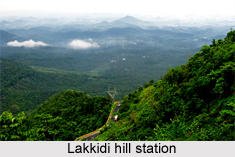 Wayanad district is situated on the southern top of the Deccan plateau. Its prime feature is the Western Ghats mountain range, standing tall with lofty ridges and interspersed with dense forest, tangled jungles and deep valleys. The terrain is generally rugged. The district of Wayanad occupies a total area of 2132 Sq. Kms. The district lies between 11 degrees 27 minutes and 15 degree 58 minutes north latitude and east 75 degrees 47 minutes and 70 degrees 27 minutes. It is bounded on the east by Nilgiris and Mysore districts of Tamil Nadu and Karnataka respectively, on the north by Coorg district of Karnataka, on the south by Malappuram and on the west by Kozhikode district and Kunnur district.
Wayanad district is situated on the southern top of the Deccan plateau. Its prime feature is the Western Ghats mountain range, standing tall with lofty ridges and interspersed with dense forest, tangled jungles and deep valleys. The terrain is generally rugged. The district of Wayanad occupies a total area of 2132 Sq. Kms. The district lies between 11 degrees 27 minutes and 15 degree 58 minutes north latitude and east 75 degrees 47 minutes and 70 degrees 27 minutes. It is bounded on the east by Nilgiris and Mysore districts of Tamil Nadu and Karnataka respectively, on the north by Coorg district of Karnataka, on the south by Malappuram and on the west by Kozhikode district and Kunnur district.
Wayanad district has quite a healthy climate. The mean average rain fall in this district is 2322 m.m. Lakkidi, Vythiri and Meppadi are the high rainfall areas in Wayanad. Annual rain fall in these high rain fall areas ranges from 3,000 to 4,000m.m. High velocity winds are common during the south west monsoon and dry winds blow in March-April. High altitude regions experience severe cold. In the district, Ambalavayal experiences a high relative humidity which goes even up to 95 per cent during the south west monsoon period. Generally, the year is classifed into four seasons, namely, cold weather (December-February), hot weather (March-May), south west monsoon (June-September) and north east monsoon (October-November). The dale, `Lakkidi`, nestled among the hills of Vythiri taluk has the highest average rainfall in Kerala. The average rain fall in Wayanad is 300mm. per year. There is a decreasing trend in rainfall in this area. The average rainfall data shows that the lowest rain fall received from north east monsoon is in Wayanad district. 
The Kabani River and its tributaries make up a rather powerful river system in the landscape of Wayanad district. Kabani is an important tributary of the Kaveri River and one of the three east-flowing rivers of Kerala. Panamaram rivulet takes its origin from the perennial lake called, `Pookode Lake`. It flows swiftly through mountain gorges and joined by other streams, tumbles down into Panamaram valley. Six kilometres further from Panamaram, this river joins with the Mananthavady rivulet, originating from the lower regions of the peak `Thondarmudi`. From this confluence onwards, the river is known as Kabani, a mighty, perennial river which after entering Karnataka state, joins with the Kaveri River. Almost the whole of Wayanad is drained by the Kabani River and its tributaries, namely, Panamaram river, Mananthavady river and Thirunelli river.
 The vegetation of the district of Wayanad is typical of the Western Ghats and the plantation crops grown in the cool climate. A major portion of the district is covered by coffee. Among the trees found here are rosewood, anjili (Artocarpus), mullumurikku (Erthrina), several species of Cassia and many other non-descript varieties which have been preserved to give shade to the coffee plants. In a majority of coffee plantations, the age-old species are replaced by the silver-oak which is suited to the cold climate. It is also used for the plywood industry and thus is economical to the farmers. Eucalyptus grandis, a shorter variety of eucalyptus, whose fragrant smell suffuses the very air around it, is cultivated on a large scale in certain parts of the district. Eucalyptus oil is extracted on commercial basis from its leaves. Of the 20,864 hectares of reserve forest, the major portion is teak plantation. Arecanut palms and jack trees are also grown here. Tea is grown as an industry in large estates. The soil and climate of Wayanad are suitable for horiculture on a commercial basis. With the clearing of forests, animal life of the forests has been on the decline. Among the animals found here are bonnet monkeys, loris, mongoose, jungle cats, squirrels, jackals, hares, etc. in the limited forest areas.
The vegetation of the district of Wayanad is typical of the Western Ghats and the plantation crops grown in the cool climate. A major portion of the district is covered by coffee. Among the trees found here are rosewood, anjili (Artocarpus), mullumurikku (Erthrina), several species of Cassia and many other non-descript varieties which have been preserved to give shade to the coffee plants. In a majority of coffee plantations, the age-old species are replaced by the silver-oak which is suited to the cold climate. It is also used for the plywood industry and thus is economical to the farmers. Eucalyptus grandis, a shorter variety of eucalyptus, whose fragrant smell suffuses the very air around it, is cultivated on a large scale in certain parts of the district. Eucalyptus oil is extracted on commercial basis from its leaves. Of the 20,864 hectares of reserve forest, the major portion is teak plantation. Arecanut palms and jack trees are also grown here. Tea is grown as an industry in large estates. The soil and climate of Wayanad are suitable for horiculture on a commercial basis. With the clearing of forests, animal life of the forests has been on the decline. Among the animals found here are bonnet monkeys, loris, mongoose, jungle cats, squirrels, jackals, hares, etc. in the limited forest areas.
Culture of Wayanad District
One of the important characteristics features of this Wayanad district is its large adivasi population. The tribal culture of this district is prevalent till this day. Some of them can be named mainly as Paniyas, Kurumas, Adiyars, Kurichyas, Ooralis, Kadans and Kattunaikkans. These are the different indigenous tribes of Wayanad. The Kurichyar is the most developed among them who are small landowners, whereas the members of other tribes are mostly labourers.
Demography of Wayanad District
Wayanad district has a large pioneer population. There are people from almost all parts of Kerala who migrated to this fertile land for building up their lives. Wayanad has a small Jain community consisting of Gowdras who came from Karnataka. They have built beautiful temples all over the district. Almost all sections of Christianity are well represented. Christians constitute one-fourth population of Wayanad while Muslims constitute another one-fourth population and rest of the population belongs to Hindus. Their hard work and sacrifice helped them to prosper. On the other hand, the last few decades have seen the complete social process of the original people.
Population of the district: According to 2001 Census, the population of this district is 7,80619 of which male population is 3,19,273 and female is 3,89,346. The population of Scheduled Tribes is 1,36,062 and that of Scheduled caste is 33,364. Population of Literacy in this district is 5,76,735 of which 3,03,579 belong to Males and 2,73,156 belong to females. Among the total population of 780619 numbers, 751007 persons live in rural areas while 29612 numbers live in urban areas.
Administration in Wayanad District
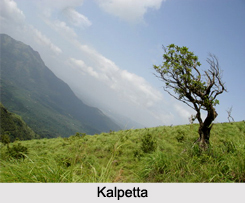 Kalpetta is the headquarters of the Wayanad District Administration with Civil Station and other main offices. The district is divided in to three taluks, names, Sulthan Bathery, Vythiri and Mananthavady with an order to smooth running of the revenue administration. There are six firkas and 49 villages under these taluks. There is only one Revenue Divisional Office in this district that functioning at Mananthavady. The Wayanad District Panchayat office functions at Kalpetta near Civil Station. There are three Block Panchayats and 25 Grama Panchayats in this district. The block panchayats includes Sulthan Bathery, Kalpetta and Mananthavady while Kalpetta is the only Municipality in the district.
Agriculture in Wayanad district .
Kalpetta is the headquarters of the Wayanad District Administration with Civil Station and other main offices. The district is divided in to three taluks, names, Sulthan Bathery, Vythiri and Mananthavady with an order to smooth running of the revenue administration. There are six firkas and 49 villages under these taluks. There is only one Revenue Divisional Office in this district that functioning at Mananthavady. The Wayanad District Panchayat office functions at Kalpetta near Civil Station. There are three Block Panchayats and 25 Grama Panchayats in this district. The block panchayats includes Sulthan Bathery, Kalpetta and Mananthavady while Kalpetta is the only Municipality in the district.
Agriculture in Wayanad district .
Agriculture is believed to be the predominant occupation in this district. The perennial crops and spices are commonly cultivated at this high altitude district. The major plantation crops include coffee, tea, pepper, cardamom and rubber. Coffee based farming system is a distinguishable feature of Wayanad district. Coffee is grown both as pure crop and as mixed crop along with pepper. The rice fields of Wayanad district are in the valleys formed by hillocks and in majority of paddy lands; only a single crop is harvested. Ginger cultivation in Wayanad district has also substantially increased in recent times and the crop here produced is mainly marketed in the form of green ginger. Home farming assumes importance in this district. The crops which are cultivated in this area include coconut, areca nut, pepper, vegetables, tuber crops, drumstick, papaya, etc. and fruit trees like mango and jack. The crop patterns or crop combinations prevailing in this district are not based on any scientific norms. For this a reason scientific cropping pattern suitable for the agro-ecological situation is to be recommended in this area.
Education in Wayanad District
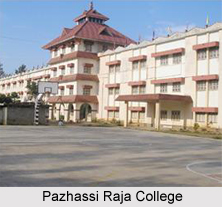 Education in Wayanad district is quite well organised. Wayanad district is a Single Education District. This means that there is one Deputy Director, one District Education Officer and three Assisstant Educational Officers looking to the educational structure and requirements of the entire district. There are a total of 301 Schools in this district, consisting of 149 Lower Primary Schools, 79 Upper Primary Schools, 29 High Schools, 32 Higher Secondary Schools, 6 Vocational Higher Secondary Schools and 6 Special Schools. It has also a District Institute of Education and Training, located at Sulthan Bathery. Besides, a Kendriya Vidyalaya, a Jawahar Navodaya Vidyalaya and 8 CBSE Schools and 1 ICSE School are functioning in this District.
Education in Wayanad district is quite well organised. Wayanad district is a Single Education District. This means that there is one Deputy Director, one District Education Officer and three Assisstant Educational Officers looking to the educational structure and requirements of the entire district. There are a total of 301 Schools in this district, consisting of 149 Lower Primary Schools, 79 Upper Primary Schools, 29 High Schools, 32 Higher Secondary Schools, 6 Vocational Higher Secondary Schools and 6 Special Schools. It has also a District Institute of Education and Training, located at Sulthan Bathery. Besides, a Kendriya Vidyalaya, a Jawahar Navodaya Vidyalaya and 8 CBSE Schools and 1 ICSE School are functioning in this District.
As regards higher education, it was a major problem in the district in the past. Due to the lack of educational facilities in the district, the students wishing to pursue higher education had to move to neighbouring districts. Over the course of time, this scenario changed and marked improvements have been made in the field of higher education. The district of Wayanad district now has six first grade colleges, two Polytechnics, one Industrial Training Institute, four B.Ed Centres and three Teachers Training Institutes. Besides, there is an Engineering College, a Veterinary College and Oriental School of Hotel Management for students interested in hotel management and catering. Most of the colleges located here offer the basic BA, Bsc and Bcom courses. Some of the noted colleges of the district are Pazhassi Raja College at Pulpally; St. Mary`s college at Sulthan Bathery; W.M.O. Arts and Science College at Kalpetta; the N.M.S.M. Government College at Puzhamudi; Mary Matha Arts and Science College at Vemom in Mananthavady; Government College at Nalloornadu in Mananthavady and the Government Engineering College at Mananthavady.
Despite the steady progress made in the field of education, the issue of tribal education is still a problem in the Wayanad district. In spite of consistent efforts, they are yet to be imbibed into the mainstream. Many of them are admitted to school, but are unable to remain and drop out early without completing their education. Efforts however continue for the education of tribals in the district. There are Residential schools that have been set apart for the education of tribal children. They are located at remote set areas where they can be easily accessed by the tribal population. These schools have better facilities and are well run.
Flora and fauna of Wayanad district
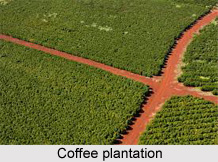 The flora of Wayanad is distinctive because of the Western Ghats and because of the plantation crops that are grown in the cool climate. A major portion of the district is enclosed by coffee. Trees of the wild type like rosewood, anjili or Artocarpus, mullumurikku or Erthrina, several species of caussia and many other non-descript varieties are still preserved here and there, the main purpose behind this is to give shade to the coffee plants.
The flora of Wayanad is distinctive because of the Western Ghats and because of the plantation crops that are grown in the cool climate. A major portion of the district is enclosed by coffee. Trees of the wild type like rosewood, anjili or Artocarpus, mullumurikku or Erthrina, several species of caussia and many other non-descript varieties are still preserved here and there, the main purpose behind this is to give shade to the coffee plants.
These trees try to balance the wasteland to the landscape of Wayanad. In a majority of coffee plantations, the age-old species are replaced by the silver-oak, which is suited to the cold climate. This tree grows quickly and its cultivation is widespread among coffee plantations for shade and for giving support to pepper. It is used for the plywood industry and so this is economical to the farmers. Eucalyptus grandis, which is a shorter variety of eucalyptus, and whose fragrant smell changes the air surrounding it, is cultivated on a large scale in certain parts of the district. Eucalyptus oil is extracted on commercial basis from its leaves.
Teak plantation takes the major part out of the 20,864 hectares of reserve forest. Areca nut, palms and jack trees are also grown here. Tea is grown as an industry in large estates. For horticulture also the soil and climate of Wayanad are very much suitable on commercial basis.
The Kerala Agricultural University is running a Regional Agricultural Research Station at Ambalavayal for promoting the cultivation of vegetables and orchards. With the clearing of forests, the varied and vibrant animal life, which was the characteristic of the forests of Western Ghats, has nowhere to be found in Wayanad. But one can still see the bonnet monkeys, loris, mongooses, jungle cats, squirrels, jackals, hares, etc. in the limited forest areas. Elephant, bear and other wild animals from the neighboring wild life sanctuaries of Karnataka and Tamil Nadu, wander away into the Begur forest range and the forests around Muthanga, which is 20 kilometres away from the town of Sulthan Bathery.
Tribes of Wayanad district
The tribes of Wayanad district can be broadly categorized into three main divisions like the The Paniyas, The Adiyas and the Kurichyas.
The Paniyas:
A vast majority of tribes in Kerala State come from the Paniya tribal division. About 71.95 percent of the total tribal population is found only in Wayanad district. The Paniyan means `worker` as they were supposed to have been the workers of non-tribes that means they had to work for the general non-tribal people. In earlier days Paniya settlement used to have a headman called `kuttan` appointed by the landlord. Next in rank to Kuttan was the `Mudali` or head of the family. Both `Kuttan` and `Mudali` are called `Mooppanmar`. Monogamy appears to be the general rule among the Paniyas.
In marriages also there is some points which resemblances the characteristics of other tribal communities such as bride price. Widow remarriage is also allowed. The Paniyas have only a crude idea of religion. Their major deity is `Kali` who is believed to be malevolent and so powerful. They also worship Banyan tree. They hesitate to cut such trees and also possess a belief that if anyone attempts to cut them they will fall sick.
The Adiyas:
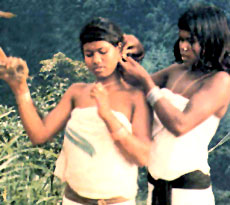 The Adiya tribe is also like the Paniyas. This is also one of the slave tribal wings in Kerala. In the nuclear Adiya family the husband is the head of the family. Bride price is given to the parents of the bride from the groom. Polygamy is practiced as well as Divorce, widow marriage, etc., are also permitted. Even if their women commit such offences they are allowed to undergo "purificatory" ceremony known as `Kalachu Veypu` to join their community back. The Adiyas call such women as `Chullachi`. The Adiya tribal community is divided into 20 classes called `Mandu` whereas the head of the Mandu is called `Chommikkaran` or `Peruman`.
The Adiya tribe is also like the Paniyas. This is also one of the slave tribal wings in Kerala. In the nuclear Adiya family the husband is the head of the family. Bride price is given to the parents of the bride from the groom. Polygamy is practiced as well as Divorce, widow marriage, etc., are also permitted. Even if their women commit such offences they are allowed to undergo "purificatory" ceremony known as `Kalachu Veypu` to join their community back. The Adiyas call such women as `Chullachi`. The Adiya tribal community is divided into 20 classes called `Mandu` whereas the head of the Mandu is called `Chommikkaran` or `Peruman`.
The Kurichyas:
This particular Kurichyas tribe of Wayanad has a great martial tradition. They constituted the army of Kerala Varma Pazhassi Raja who fought the British forces in several battles. The descendants of those warriors are still expert archers. Recently various centres exhibit the excellence of Kurichya archery in many ways. The Kurichyas are the most developed among the adivasis and they also own small lands. The art performed by Kurichyas is `Nellukuthu pattu` which is very famous among the localites.
Tourism in Wayanad District
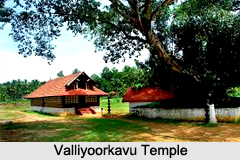 Tourism in Wayanad district offers a golden opportunity to the tourists who would love to be regaled by the hilly and misty beauty of this place in Kerala. The tribal arts of Adiyar and Paniyar tribes nestled in the hills of this region are the hallmarked tourist attractions of Wayanad district. A tour to this district would showcase the enigmatic panorama to a tourist.
Tourism in Wayanad district offers a golden opportunity to the tourists who would love to be regaled by the hilly and misty beauty of this place in Kerala. The tribal arts of Adiyar and Paniyar tribes nestled in the hills of this region are the hallmarked tourist attractions of Wayanad district. A tour to this district would showcase the enigmatic panorama to a tourist.
The hills, rocks and valleys contribute to the very unique character of Wayanad district, thus providing the opportunity for the exploration of tourism. The name of the district `Waynad` is derived from the term `Wayanadu` which means land of paddy fields and the name is justified with the lush, green scenic fields. The climate of this district is alike the hill stations in south India. It offers a panorama of undulating hills and dales. The hills, which might have been thick forest once, are now plantations of coffee, tea and cardamom. Tourism in Wayanad district virtually depicts the luxuriant greenery that is predominant in this district.
Pilgrimage Tourism in Wayanad District
Other than the natural sites in Wayanad district, there are also many prominent pilgrimage places in the region. Thirunelli Temple is fine specimen of classical Kerala Temple Architecture, which is placed among the mountains and forest. This ancient temple is situated at the side of a river, which is dedicated by Brahma to Vishnu in the form of Chaturbhuja. The temple is often referred to as Dakshina Kasi or the Kasi of South, this temple draws pilgrims from all over India. A clear mountain spring known as Papanasini lies close to the Thirunelli temple. A ritual dip here in this water is believed to wash away all the sins. The two main festivals celebrated here at the time of April and August-September.
Valliyoorkavu Temple is an important place of worship for the tribal communities in Wayanad. This is dedicated to Mother Goddess in her three principal forms of Vana Durga, Bhadrakali and Jala Durga. The annual festival is celebrated till long fifteen days during March-April. Sita Lava-Kusha Temple is the only temple dedicated to Lava and Kusha, the sons of Lord Rama. Local legends connect this region with many important episodes from the Ramayana. The Pazhassi Raja used to worship Lord Rama and from that time this temple has traditionally permitted entry to devotees from all faiths.
The architecture of Thrissilery Shiva Temple is related with the Vishnu temple of Thirunelli. It is believed that the performance of ancestral rites at Thirunelli remains unfinished unless followed by offerings at this temple. Within the premises there is also a shrine devoted to Jala Durga. It is believed that legendary persona Parashurama installed holy place. There are many myths connected with the temple tank here, which never dries up. Pallikkunnu Church was established in 1905 at the initiative of a French Missionary Fr. Jeffrine. This was dedicated to the Lourdes Matha. An interesting aspect of this church is that it has several rituals and practices similar to those prevalent in Hindu temples. The annual two-week `Perunnal` festival in early February draws large number of devotees from other parts of Kerala, as well as outside.
Sulthan Bathery Jain Temple is one of the most important religious sites amongst a series of ruins spread across the state of Kerala. It gives evidence to a period of a strong Jain presence in this region. The temple was built in the 13th century, which served as a Hindu temple. It also acted as an important center for commercial activity and in due course as a battery or ammunition store for Tipu Sultan`s marching armies. Apart from this temple, there are other significant Jain remnants in Wayanad.
 Nature Tourism in Wayanad District
Nature Tourism in Wayanad District
The Kabbani river of Wayanad is a perennial source of water to the Kaveri River. The other characteristic features are the presence of large numbers of tribals or Adivasis. The district also has small Jain community consisting of Gounders who came from Karnataka. The Jains have built beautiful temples in the district that has an awesome view.
Trekking to the Chembra peak is a risky attempt for mountaineering and also a lovable activity for the tourists. Chembra peak is the highest hill in Wayanad and is near to Meppady town. Trekking to the top of this peak takes almost one entire day. The facilities of temporary camps are there in which tourists can stay one or two days at the top of the peak. District Tourism Promotion Council provides guides, sleeping bags, canvases, huts and trekking implements on hire. The scenic beauty of Wayanad, visible from the top of Chembra, is very exhilarating and thrilling.
Edakkal Caves are another tourist attraction in Wayanad district. However, the Edakkal cave in the Ambukuthy Mountain is not a cave in the real sense. It is only a crevice about 96ft. long and 22ft wide in the rock. It is only a fissure made by an area of rock splitting off from the main body that happened due to some natural causes. The rock wall contains some interesting carvings, which represent human and animal figures and objects of human use and symbols. These carvings speak of a highly civilized people of pre-historic age and inspire the archaeologists and historians to rewrite the history of Wayanad and Kerala as a whole.
Muthanga Wild Life Sanctuary is located at 16 km East of Sulthan Bathery, which is very near to the Karnataka border. Wild forests covering an area of 345 sq. km form the Muthanga Wild Life Sanctuary here. This sanctuary is the biggest habitat of wild animals in Malabar. Elephant, spotted deer, bison, tiger, cheetah, wild bear, etc. are found in this sanctuary. The forest Department has arranged the facilities of elephant rides for tourists to promote tourism. Pakshipathalam in the Brahmagiri hills at Thirunelli is a challenging tourist spot for any adventure-seeking tourist. Seventeen kilometers of wild forest have to be covered to reach this spot. The deep rock caves, formed among the thick blocks of rocks at the northern top end of the Brahmagiri, are the abode of various birds and wild beasts. Special permission has to be obtained from Forest Department to go to Pakshipathalam. District Tourism Promotion Council arranges for vehicle, guides, and camping equipments for the tourists on hire.
Sentinel Rock Waterfalls is at Vellarimala village near Chooralmala in Meppadi Panchayat. It is a picnic spot, but trekking can also be done here. There is one rock named as the sentinel rock, which is more than 200 m in height. This rock is ideal for rock climbing. Kanthanpara Waterfalls is relatively smaller than Sentinel Rock Waterfall and also less explored. Kanthanpara and its surroundings are very pleasant. This place is perfect for picnic as it is situated far away from town. The waterfall at Soochippara near Meppadi is really a treasure of nature. The stretch of waterfalls ranges at places from 100 to 300 feet height. The pool below can be used for water rafting, swimming, bathing and other water sports. The tree top huts at Soochippara give a unique view of the valleys of the Western Ghats and the glimmering shallow waters of the surrounding springs. Banasura sagar Dam is the largest earth dam in India. The topography of this place is such that many islands will be formed in the upstream of the dam when the dam is full. These islands with the background of the Banasura hill will provide a mesmerizing sight to tourists.
Leisure Tourism in Wayanad District
Kuruva Island is 950 acres of evergreen forest situated on the tributaries of east flowing river Kabani. Far away from the disturbances of city life it is an ideal picnic spot for the tourists. The island is isolated and also scarcely populated. Rare species of birds, orchids and herbs are the sovereigns of this supernal kingdom. It is placed at 17 Km east of Mananthavady and 40 km Northwest of Sulthan Bathery. Lakkidi has very pleasing scenery. It is about 58 km northeast of Kozhikode and five km south of Vythiri. Lakkidi, which is called as the gateway of Wayanad, lies atop Thamarassery, a ghat pass at an elevation of 700 m. above mean sea level. The high mountain peaks, the lovely stream, luxuriant vegetation and the bird`s eye view of the deep valley on the south, with its winding roads, are real wonders for the tourists. The 12 km long journey starting from Adivaram to Lakkidi through Ghat road with nine hairpin bends amidst thick forests is a fascinating experience.
Pazhassi Raja Tomb at Mananthavady is a good picnic destination. This is situated in north Wayanad. There is a good aquarium, which attracts the children very easily. Coin-operated toys for children and boating facilities for tourists are also available. Pazhassi Raja, the Lion of Kerala, who organized guerilla type warfare against British East India Company, was cremated here in 1805. Pookot Lake It is a natural fresh water lake, filled with ever green mountains. Here the weather is sensational, the scenic beauty is hypnotizing and the nature is still unspoiled. Pookot lake tourist resort in Vythiri is the most desired tourist spot of Wayanad. There is an aquarium and a green house where boating facilities are also available. Spices and handicraft items are also arranged for sale at Pookot. 
Visiting Information on Wayanad District
How to Reach
Reaching Wayanad district is possible from anywhere in India.
Air: The nearest airport is at Kozhikode, Calicut and is at a distance of around 100 kilometers from Wayanad.
Rail: The nearest railway station is also at Calicut. Wayanad district is well connected by extending railway network.
Road: Many roads connect this district to various parts of the state. This district is well connected from places like Kozhikode, Ooty, Mysore and Bangalore. National highway, like, NH 212 connects this district to several other cities and states.
As far as accommodation is concerned there are resorts, cottages and various hotels to suit every pocket. Glenora Homestay, Stream Valley Cottages, Jungle Park Resort and Tree Houses, Hotel Green Gates, Vythiri Resort, Issacs RegencyWayanad and several others are located in Wayanad. It is also a great place for shoppers. The handicraft and handloom products of this district are highly esteemed ones in south India. The crafts here are mainly made of coconut shells, ivory, canes, wood and metals. Other items like garments, textiles and furniture are also found here in excellent quality and at affordable costs. While Wayanad district can be perfectly explored all through the year it is best to avoid it during monsoons.
Tourism in Wayanad district offers something of interest for all age groups and all kinds of tourists. The nature is found at its best, with provisions for various adventurous and thrilling activities. The heritage and pilgrimage domain is also affluent with marvelous temples that are hubs of celebrations during its respective occasions.







